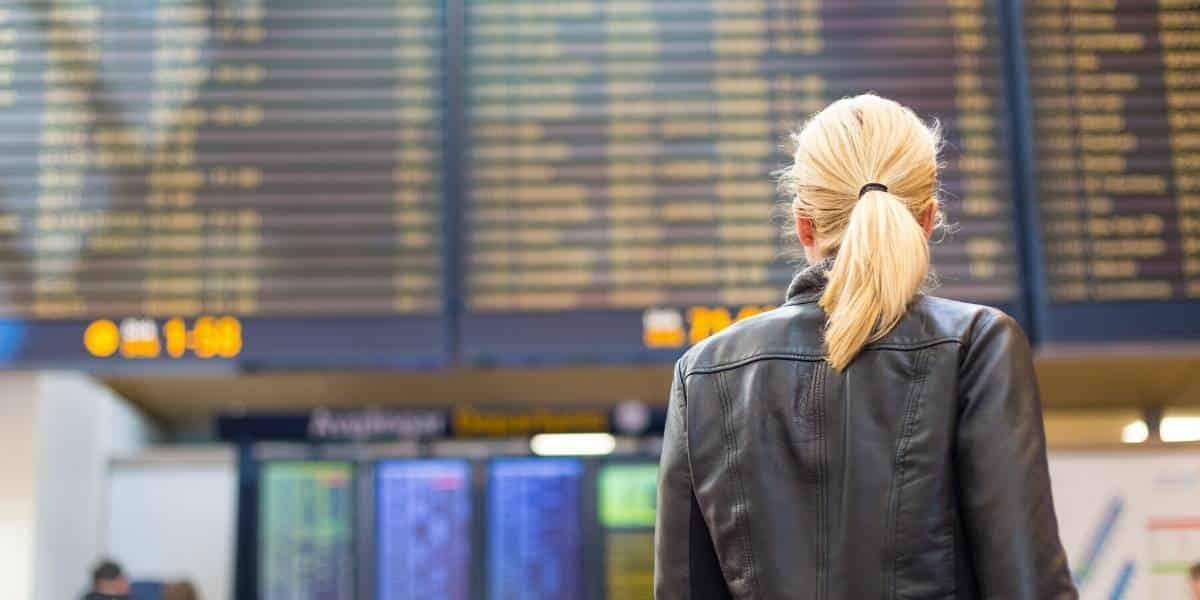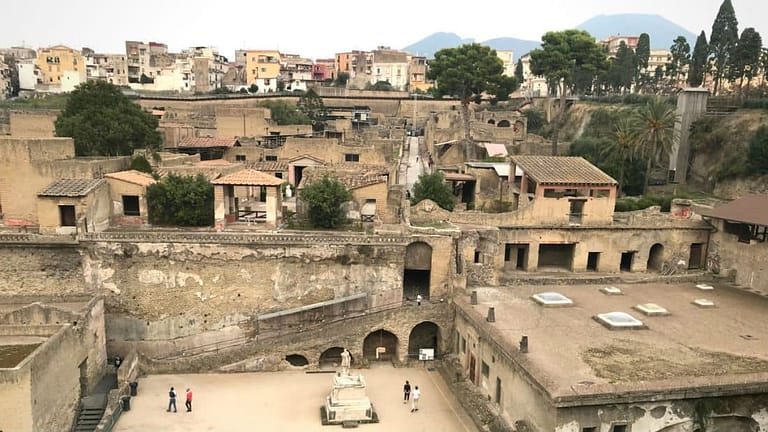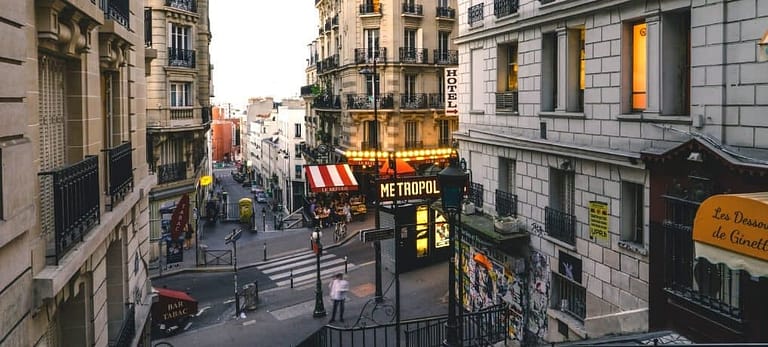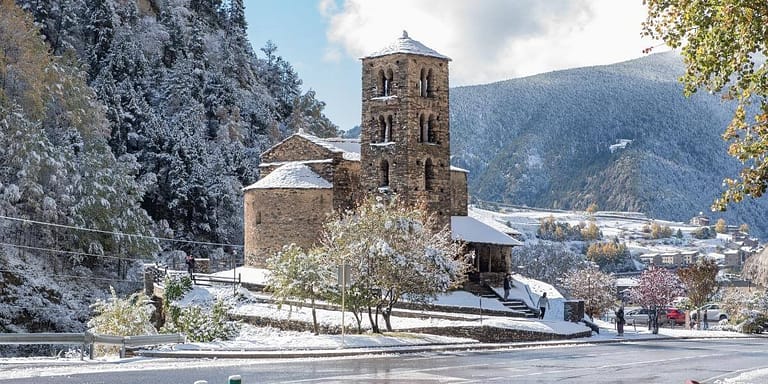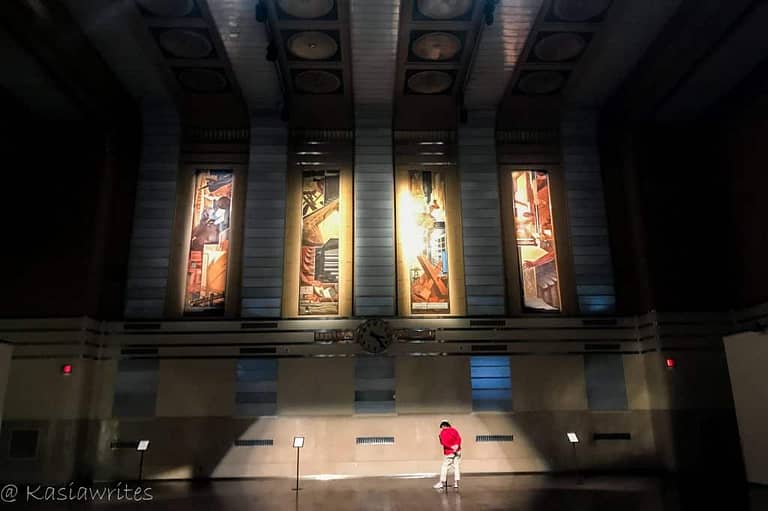8 Lessons from travelling to Italy on a brink of a pandemic
As 2020 rolled in, so did my hopes for a spectacular year. I had many trips in the pipeline, starting with a conference in Catania, Sicily. Italy in March seemed like a great idea, and a chance to make a stop in Rome just added to the excitement. I was also looking forward to connecting with other bloggers, destinations and brands. It was going to be an amazing opportunity.
I signed up for the TBEX conference in August 2019 when it was announced. I was beyond excited to return to Sicily and have been looking forward to it for months. In January, a new virus started making headlines for wrecking chaos in China. It all seemed so far away and nobody ever thought it would become a global pandemic.
Affiliate Disclosure – This post contains affiliate links. If you make a purchase through these links, I may earn a commission. This doesn’t affect your purchases or any fees you may pay for the product or service. Read more in my DISCLAIMER.
Lesson 1: You can’t control the actions of others
As weeks went on, Coronavirus started spreading, and it made its way to Italy. As the outbreak seemed contained to the northern part of the country, the conference was still a go. Nervously, everyone was watching the news, hoping it would all work out.
I must say that those days were very nerve-wracking. Every day the news was different. People on the ground in Catania insisted that everything was fine, and the organizers assured that the conference would still go ahead as planned. Everyone tried to stay positive.
There were opinions on both sides of the “should we continue/cancel/postpone” argument. Those that had non-refundable flights, hotels, etc., faced losing significant amounts of money. Without cancellation and/or restrictions by country of origin, refunds were not possible. Others were fearful of not being able to return home without mandatory quarantine or infecting their families.
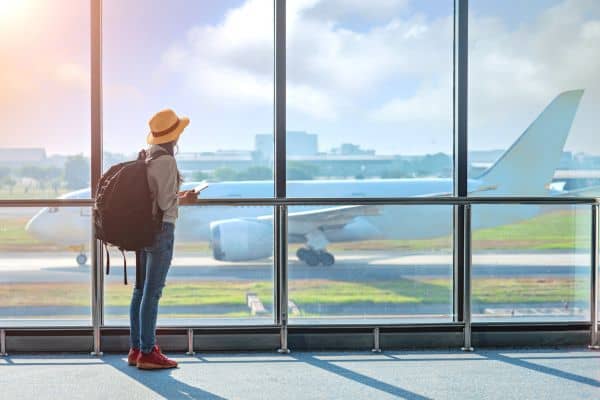
As the days went by, the date for free cancellation of my accommodation expired. Others were facing similar issues. It was all becoming very stressful, and I just wanted the organizers to make a decision. Cancel or go ahead, but decide one way or the other. I couldn’t make any decisions until they did.
Then, the US raised its travel warning against travel to Italy, and things got tricky. According to TBEX, about 52% of its attendees are from North America. With each conference attracting anywhere between 600-800 delegates from around the world, this makes planning or, in this case, postponing or cancelling an event, quite challenging. I totally get that, but someone had to make that decision.
Lesson 2: Not all travel advisories are created equal
When the US announcement came, we all expected the conference to be cancelled or postponed. However, it took two more days before the organizers finally decided to postpone the conference. It was four days before my scheduled flight.
While the US announced restrictions on travel to Italy, other countries have not. Since I live in Canada, I had to follow the travel advisories in my country. At that time, Canada had no restrictions for the part of Italy I was going to, and that made things difficult to get refunds on my flight or the hotels. The cancellation of the conference wasn’t enough for my credit card insurance to issue a refund. The same applied to the accommodations I have booked in Rome and Catania. No restriction meant no cancellation and no refund.

I think this is a very important point to keep in mind. Always follow travel advisories of your own country first, then that of the country you are in (more about that later). It doesn’t really matter if you think they are warranted or not. Following them ensures that you don’t lose coverage, and there are potential refund options (this also depends on your credit card). Travelling despite the advisories can void your insurance and put you at risk. With that in mind, and since many of the tours around the conference were still scheduled to go ahead, I decided to go to Italy after all. It was going to be an epic adventure or a total disaster.
Lesson 3: Not everything is always as it seems
I wasn’t sure what to expect when I arrived at the airport in Toronto. Everything seemed fine, with a handful of people wearing masks. There was no panic, no disorder. The flight to Amsterdam was uneventful. So was my three-hour layover.
Armed with disinfectant wipes, soap and hand sanitizer, I finally arrived in Rome. If you didn’t know what was going on in the world, you wouldn’t know anything was amiss. In fact, with spring around the corner, Rome was warm and sunny. A nice change to the still wintery Toronto I left behind.

I can’t speak for what was happening in other parts of the country (especially the northern regions severely affected by COVID-19). However, being in Rome, as things were rapidly changing, was an interesting experience.
As the north of Italy was getting isolated, in Rome, things still went on as normal. I met up with a couple of friends, enjoyed the city and filled up on pasta. The media painted Rome as deserted and devoid of people. What we saw was different. Life was still normal, with people eating out on patios, strolling around the city, and groups of tourists still touring around. It wasn’t as packed as it is during summer, but I wouldn’t call it deserted.
On my second day in Rome, the government ordered all museums and monuments closed to the public. Things still seemed fine. The only constant was the ever-changing schedule of the tours we had scheduled in Catania. Closures and government-mandated rules (ex., the distance people had to keep between each other) made it challenging to plan excursions for many people. I didn’t know what to expect in Catania.
Lesson 4: Sometimes it’s worth paying more
Once I found out that there was a train from Rome to Catania, I knew I had to take it. It meant a long journey to get there. However, the idea of flying, having to rush to the airport and waiting around didn’t appeal to me. I decided to splurge and booked myself a first-class ticket, which cost less than a flight.
As I dragged my suitcase to the train station that morning, I was blissfully unaware of how my life would change once that journey was over.
Most of the time, it was just me with a few train conductors coming and going. While on the train, I found out that the Italian government’s lockdown of the northern areas was leaked the night before. There was a mass exodus as people scrambled to leave the heavily affected areas, which meant the virus’s potential spread in other parts of the country.

While people might have been escaping from the north, they were not in my cart. I was glad that I paid the extra $20 for the first class. That meant fewer chances of getting in contact with someone who might have been infected. Nobody to walk by me or cough/sneeze on me. However, they kept turning off the lights for some reason, and I sat alone in the dark, wondering what the heck was going on.
Once we made it to Sicily, the local police boarded the train to check IDs, looking for escapees. However, as I was the only person in my cart and the lights were off, the police didn’t come inside. I saw them walking by my window and, for the first time, wondered how strict the measures were. It turned out that I didn’t have to wait long to find out.
Lesson 5: The importance of making decisions on the fly
When I got to Italy, I made sure that I had a local SIM card with plenty of data. That enabled me to stay in touch with family and friends while checking the news as it was happening. This became very important on my way to Sicily. Things started to change rapidly, and by the time my train arrived in Catania, the government announced a lockdown of the whole country.
The message from our organizers was GET OUT OF ITALY, ASAP.
I don’t know about you, but this was a first for me. Despite all my travels, I’ve never been in a situation like this before. However, I’ve been in numerous situations that required me to make decisions in high-stress situations. All that experience came in very handy.
Listen to my story on the Tavel Horror Stories Podcast!
My train arrived in Catania at about 10 pm. At this point, I knew that Italy was shutting down its borders, but I had no idea what that meant. Either nobody could leave, or non-Italians were the only ones allowed to leave. The best course of action was to make my way over to the restaurant where the rest of the people who came here for TBEX were having dinner. It was my best chance to understand my options and get some food. A girl’s got to eat, after all.
The good news was that the shutdown allowed foreigners to leave, meaning I wouldn’t have to make my way to our family in another part of Italy. It was a good option to have, which is probably why I didn’t panic.
As the news spread, we expected many countries to start blocking flights and arrivals from Italy. It was no longer a matter of where I would like to go but what would be the quickest and safest way to get home.
Recommended reading: How to deal with travel mishaps on the road
The process of elimination
Being in Europe guarantees a wide range of flight options between countries. I needed to pick a place that matched my criteria. A) wouldn’t immediately block flights from Italy, B) had a direct flight from Catania and C) had a direct flight to Toronto. I considered flying to Vienna but wasn’t sure if all points applied. I then looked at Warsaw as there is a direct flight to Toronto, but I assumed that Poland would limit/close its borders to Italy’s arrivals. I considered Paris and London but opted against both.

Since my original flight to and from Italy was with KLM, Amsterdam became the logical choice. I knew that I could reschedule my flight home with KLM at no additional cost, and there was a direct flight to Toronto. The Netherlands also seemed like a place where they wouldn’t make rash decisions and block flights. Since there was a direct flight from Catania to Amsterdam the next day, I booked it. This whole thought process only took a few moments and by the time my food arrived, I had it all sorted out.
I left Italy the next morning, four days after I arrived. The world has changed drastically in those few days. My decision to fly to Amsterdam proved a good one. Soon after I got to Amsterdam, I found out that Austria closed its borders with Italy, and soon after, Poland announced its own lockdown. Many of the London flights also got cancelled, leaving people scrambling.
Lesson 6: Always understand your options
Before I left for Italy, I called my credit card company. My card (RBC Avion Visa Infinite) offers great travel benefits, including travel interruption insurance and health coverage. I needed to make sure that I was covered if anything happened while I was away, including getting sick. So, if I got Coronavirus or broke my leg, I was covered. If travel advisories changed while I was travelling, I was covered.
Knowing this ahead of time was reassuring. My flight with KLM was booked on points, and the airline was great at changing my flights and getting me home. I made sure to look up the company website for information.
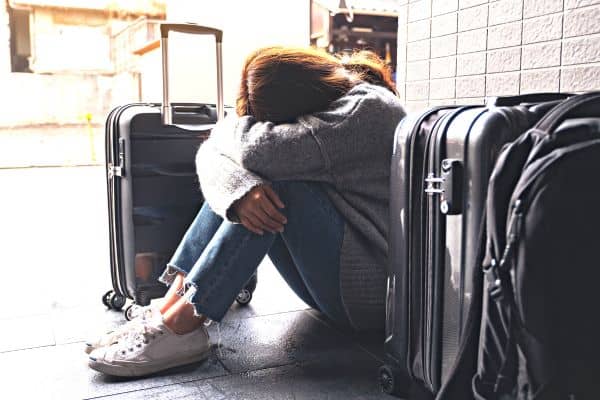
As the situation changed, so did the policies of many companies, including insurance and accommodations. While Bookings.com partially refunded my hotel in Catania, I was able to submit a claim for the rest of the fee and the flight to Amsterdam from Catania and get some of my money back.
I left Canada knowing exactly what was covered and what my options were should things change. It put my mind at ease and I wasn’t worried. This is one of the most important pieces of advice I can share with you. Understand what is covered and what isn’t. What are your options should something change before or during your trip? This could save you time and money down the road.
Lesson 7: Take warnings seriously
Travel has become ingrained in our lives. We take it for granted and see it as a right. If anyone had any doubts about this, the Coronavirus pandemic showed us just how true this is. As the infections spread across the world, many people refused to cancel travel plans going ahead and travelling. If you’ve been saving up for a special trip, it’s difficult just to cancel it. I understand that.
Many travellers found themselves stranded in foreign countries, unable to get home. We forget that not all countries are the same. Many imposed complete lockdowns, meaning nobody could leave or arrive. It didn’t matter if you were a citizen or a visitor. Other travellers got stranded on cruise ships as countries refused to allow them to dock.

I have seen people lash out at those that travelled, blaming them for leaving despite warnings. Others accused them of being selfish for not returning home when they had a chance. I can see both sides of the argument, and I don’t think we expected this situation to become what it did. It was an important lesson in learning how to take warnings seriously. If you’re told to get out, you leave. If you’re told to come home, you go. Otherwise, it snowballs into bigger and worse issues.
I stayed in Amsterdam for a couple of days and made it back just in time. Soon after I arrived, Canada (as many other countries) shut its borders to most foreigners and the prime minister called for Canadians to come home. Sure, I could’ve stayed in Amsterdam for longer. But, as I watched the situation around me change so rapidly, I knew that the best option was to come home.
Lesson 8: Hindsight is always 20/20
The Coronavirus made headlines as early as January. At that time, we didn’t really think of how that would impact us. I certainly didn’t and many others didn’t either. Yes, it was a terrible thing that was happening, but it seemed so far away.
It’s easy to play the “what if game,” but that won’t change things. I could have waited till the last minute to book my flight and accommodations or canceled them when I still had the chance. I could have stayed home and absorbed the financial loss. Governments could have stepped in sooner and done more to enforce rules. Could have, should have, would have.
There is a reason they say hindsight is 20/20. But they also say that we all learn from our mistakes. Although a costly lesson, it has taught us that things can be taken away from us just like that. It also showed us that there are still passionate, amazing people in the world, and I can’t wait to travel again to meet more of them.
Life after coming home
I’ve had plenty of time to think of my experience while I stayed home for 14 days as directed by government officials. I didn’t have any symptoms, nor did I think I had to encounter anyone sick. It didn’t prevent me from worrying each night about going to bed and waking up with symptoms. Luckily, nothing happened, and once I reached 14 days, I felt great.
During my two-week social isolation, I watched as the numbers of new cases and deaths skyrocketed in Italy and worldwide. It was hard to believe that within a few days, the situation escalated so much. Today, many countries are on lockdown, and people are self-isolating at home. Travel has come to a standstill, and nobody knows when this will pass. It feels like my trip to Italy was years ago, not weeks. Do I regret going? No. I left armed with information and made sound decisions throughout the whole ordeal. Now, I’m hoping we get through this and get back to normal, whatever that will look like.
Travel Resources
Planning your next trip? Check out the resources I use and start planning your perfect getaway today!
- Flights: Find the best flight deals on Kiwi.com (my new go-to for flights)
- Book your accommodations: Find the best prices on hotels with Booking.com
- What to do: Find the perfect tour with Viator
- Need a car? Book your ride with Rentalcars.com
Check out my travel resource guide for more resources to help you plan your trip.

